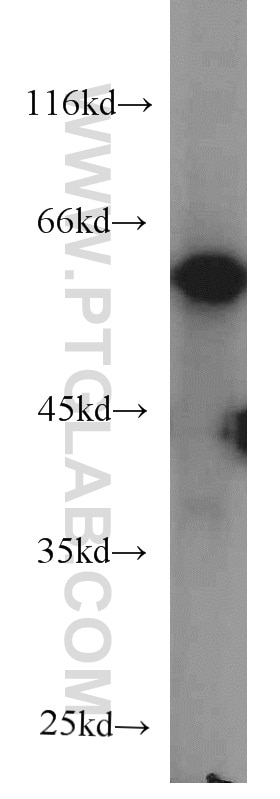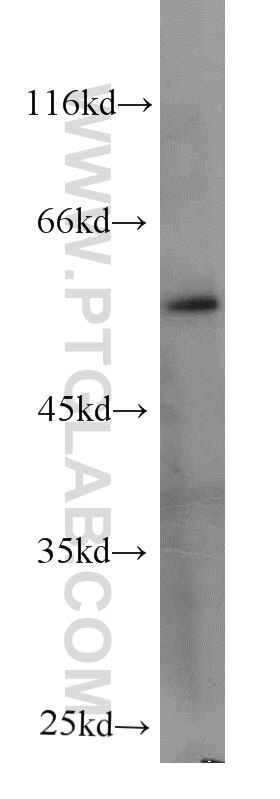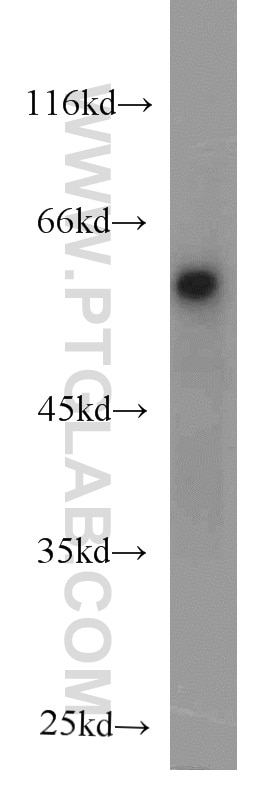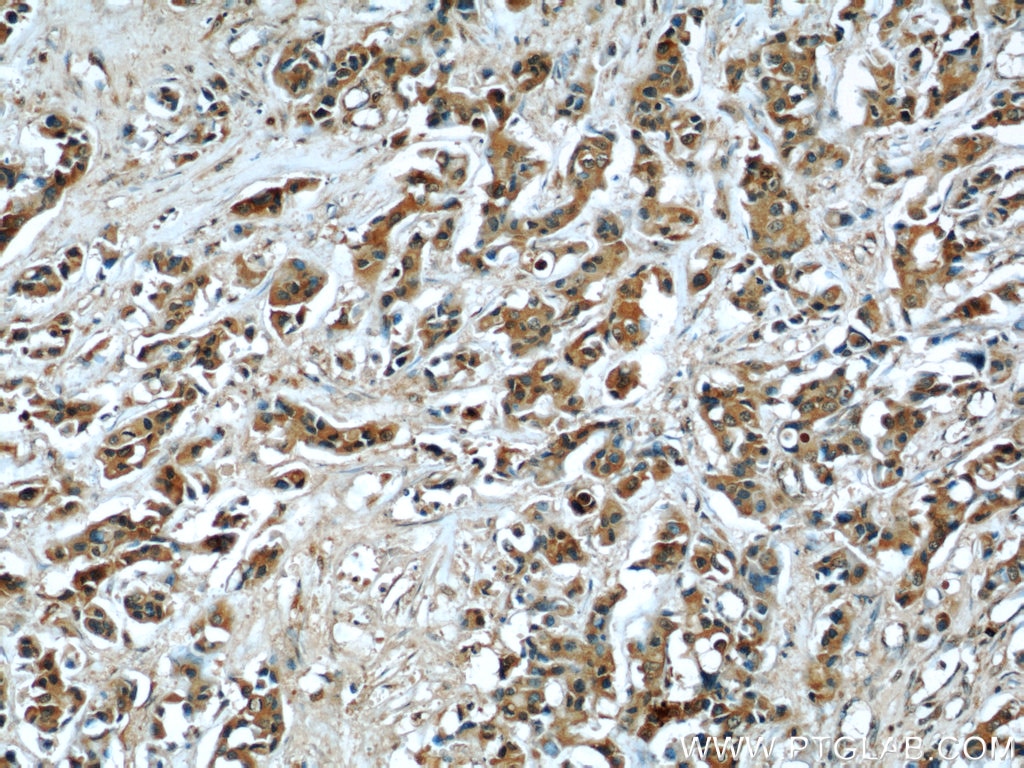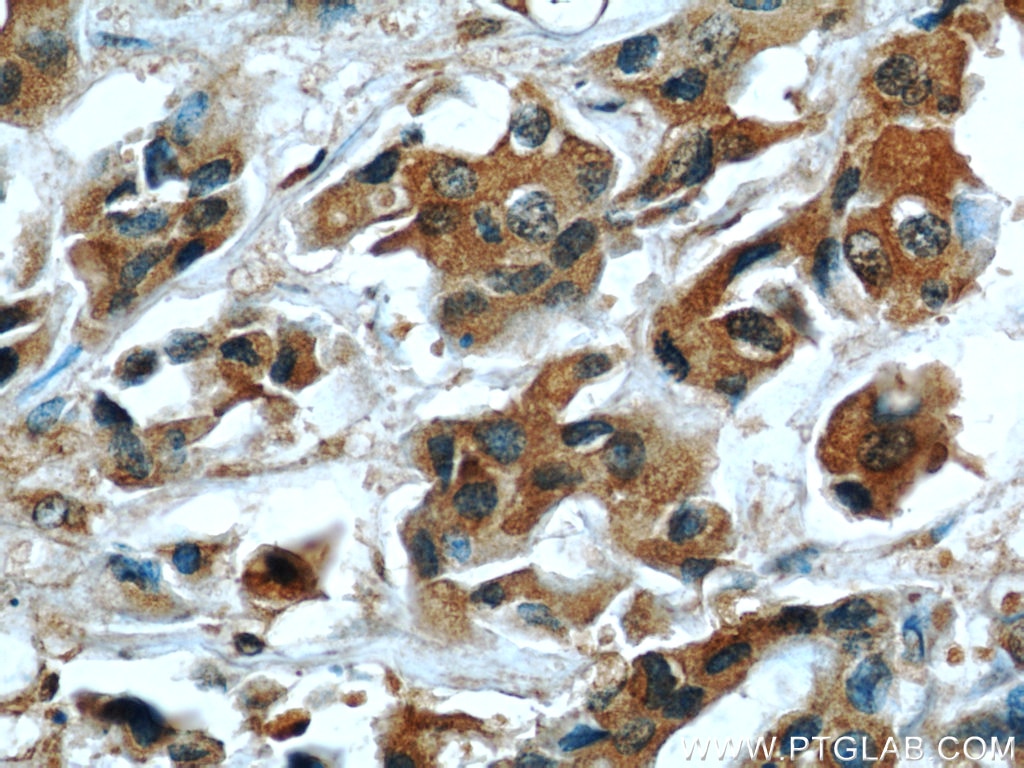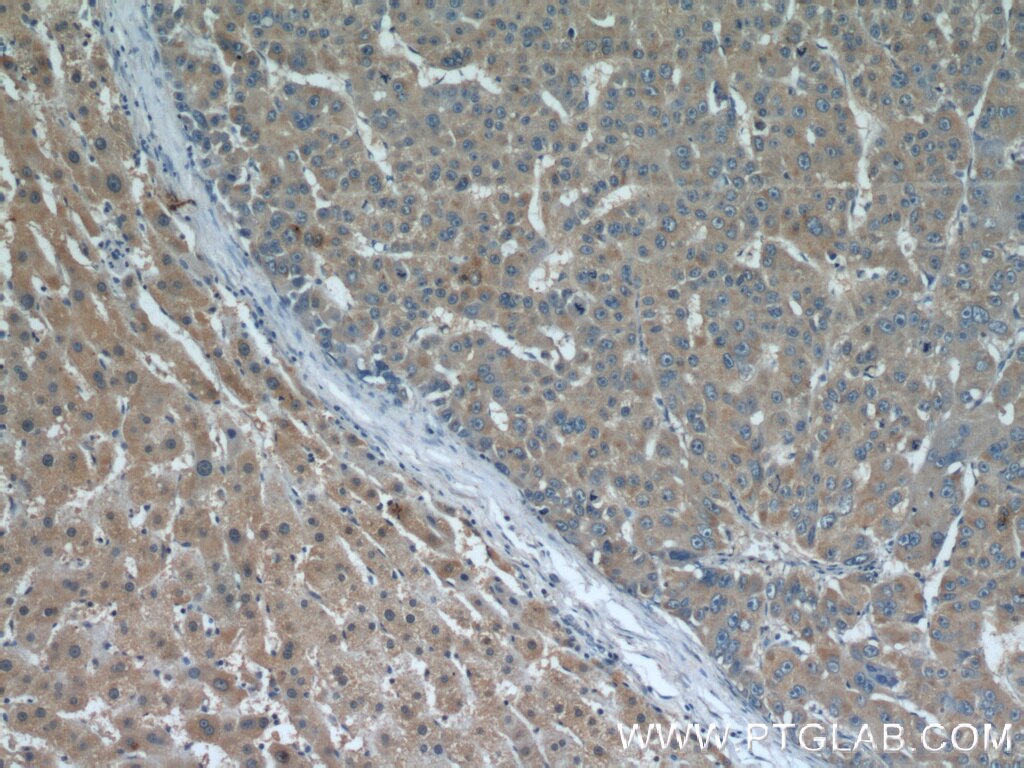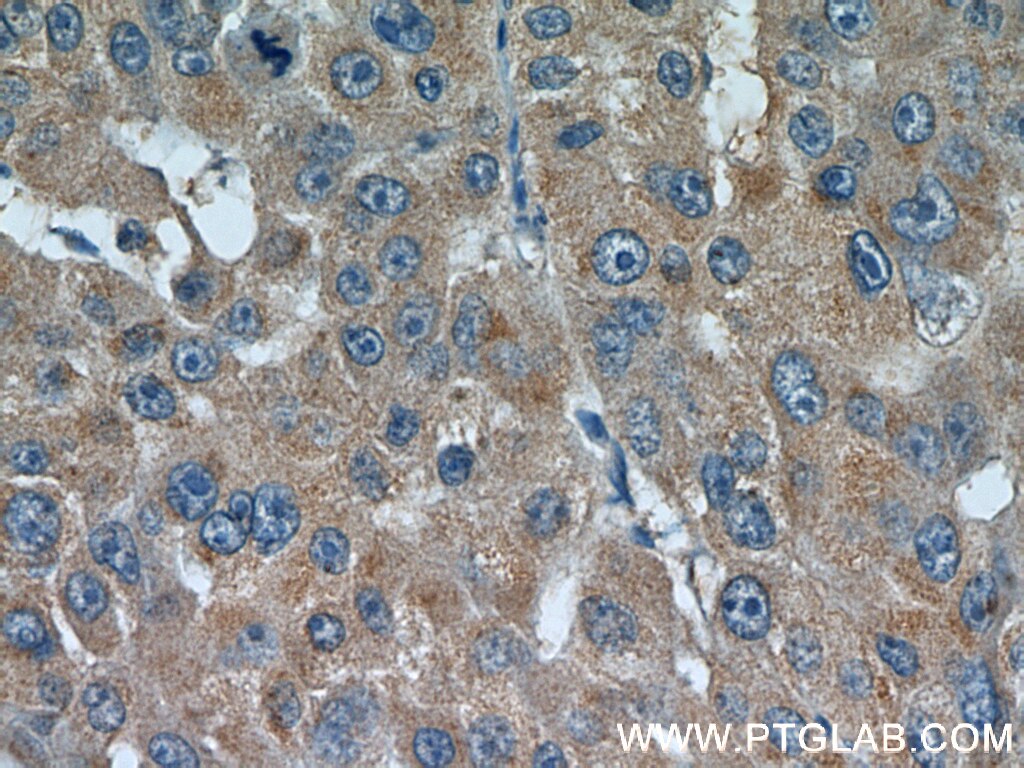Tested Applications
| Positive WB detected in | MCF7 cells, COLO 320 cells, human heart tissue |
| Positive IHC detected in | human breast cancer tissue, human liver cancer tissue Note: suggested antigen retrieval with TE buffer pH 9.0; (*) Alternatively, antigen retrieval may be performed with citrate buffer pH 6.0 |
Recommended dilution
| Application | Dilution |
|---|---|
| Western Blot (WB) | WB : 1:500-1:1000 |
| Immunohistochemistry (IHC) | IHC : 1:20-1:200 |
| It is recommended that this reagent should be titrated in each testing system to obtain optimal results. | |
| Sample-dependent, Check data in validation data gallery. | |
Product Information
66023-1-Ig targets ECM1 in WB, IHC, ELISA applications and shows reactivity with human samples.
| Tested Reactivity | human |
| Host / Isotype | Mouse / IgG2a |
| Class | Monoclonal |
| Type | Antibody |
| Immunogen | ECM1 fusion protein Ag17955 Predict reactive species |
| Full Name | extracellular matrix protein 1 |
| Calculated Molecular Weight | 540 aa, 61 kDa |
| Observed Molecular Weight | 61 kDa |
| GenBank Accession Number | BC023505 |
| Gene Symbol | ECM1 |
| Gene ID (NCBI) | 1893 |
| Conjugate | Unconjugated |
| Form | Liquid |
| Purification Method | Protein A purification |
| UNIPROT ID | Q16610 |
| Storage Buffer | PBS with 0.02% sodium azide and 50% glycerol, pH 7.3. |
| Storage Conditions | Store at -20°C. Stable for one year after shipment. Aliquoting is unnecessary for -20oC storage. 20ul sizes contain 0.1% BSA. |
Background Information
Extracellular matrix protein 1 (ECM1) is a glycoprotein involved in a number of biological processes such as such as bone formation, skin differentiation, cell proliferation, and promotes angiostasis. Pathologically, ECM1 contributes to the formation and metastasis of several types of cancer including breast, thyroid and hepatocellular cancers.(21128013) It inhibits MMP9 proteolytic activity.
